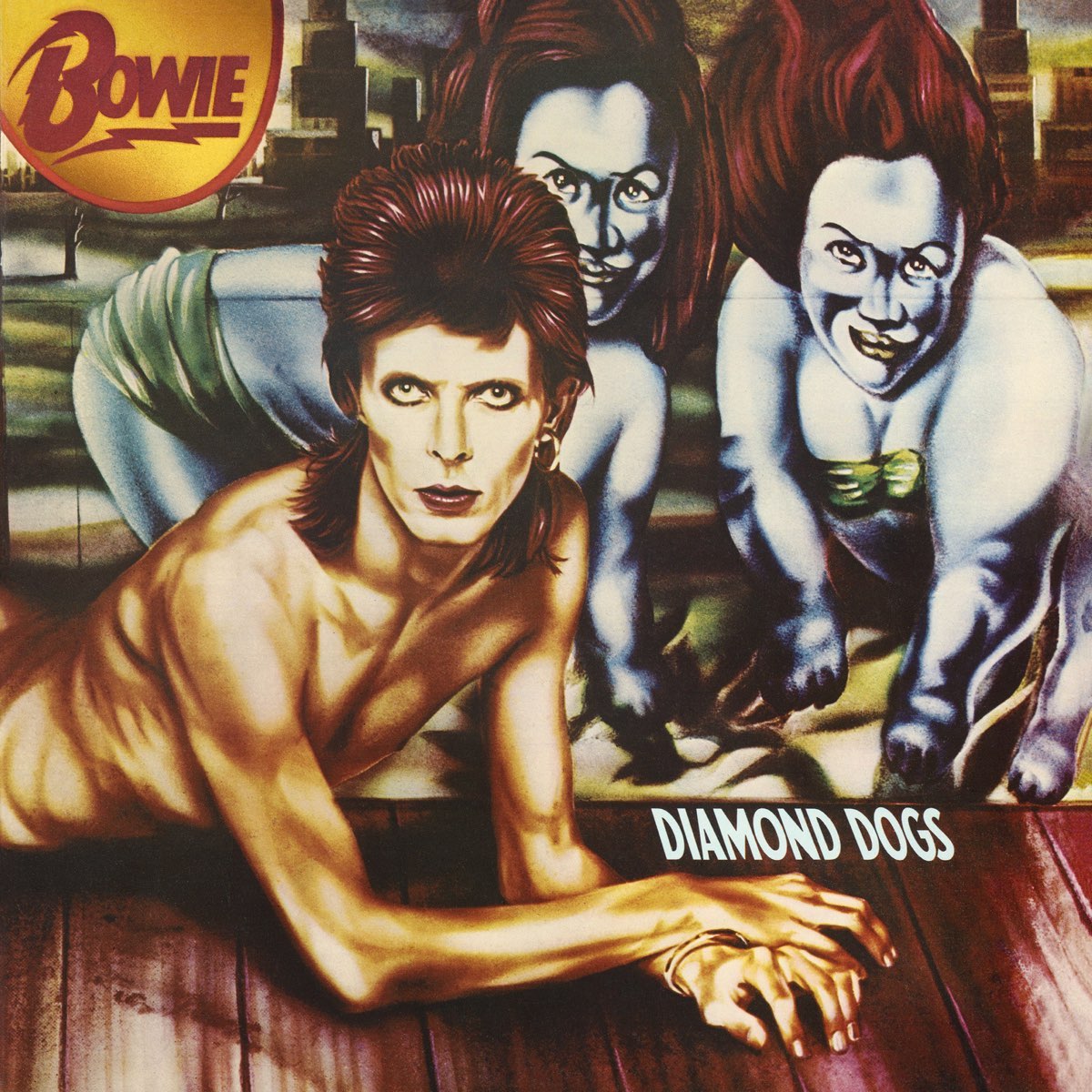It is clear that David Bowie is no longer the homo superior he once claimed and many believed him to be. It was a belief based on Hunky Dory And Ziggy Stardusttwo albums of surprising genius that will be counted among the great albums of the 70s. After that, however, Bowie disappointed even his most ardent devotees. Aladdin Sane it was an inconsistent album, Pin-ups it was banal and now it comes Diamond Dogsperhaps Bowie's worst album in the last six years.
It would be presumptuous to pretend to explain Bowie's decline – he is a private man whose thoughts remain a mystery – but two considerations are worth making. Bowie's early records did not sell particularly well in the United States, despite their success in England, which must surely irritate an egomaniac like him. This may have led him to hope that if America did not love him in the best of times, perhaps it would love him in the worst. From Aladdin Sane Since then, Bowie has tended to pander to the public by imitating those more successful than him such as Alice Cooper and Mick Jagger. This has resulted in him and his music being belittled.
Secondly, Bowie became increasingly obsessed with the figure of the superstar and its trappings, which is why he abandoned his name and now calls himself, in emulation of Garbo and Brando, simply Bowie. Hunky Dory And Ziggy were carefully conceived, in solitude; since then Bowie's energies have been directed towards celebrity at the expense of music, which he now seems to regard almost with contempt. Why else would he have chosen to play lead guitar in Diamond DogsGuitarist Mick Ronson has always been one of the best things about his music, replacing him sounds a bit like Mick Jagger deciding to leave Keith Richards at home.
Hunky Dory And Ziggy Stardust were also great for the challenges they presented. Bowie challenged listeners to confront a new and alien sensibility; he challenged them to reexamine their assumptions about sexuality; he challenged them to question their relationship to rock 'n' roll, a commodity that had become not so different from mayonnaise or aluminum foil. With him, the promise was, music could once again matter as it had before Dylan, the Beatles, and so many others lost themselves in what was simultaneously a midlife crisis and a second childhood. In short, Bowie challenged us and our music to change, both mired in a deadly complacency: “Look out you rock 'n' rollers / Ch-ch-ch-ch-Changes / Turn and face the strange / Ch-ch-Changes / Pretty soon you're gonna get a little older.”

Bowie was never very clear about the nature of these changes, but he at least saw the need for them and the proof seemed to be in the liveliness, energy and originality of Hunky Dory And Ziggy. What made the challenge so inviting were Bowie's prodigious skills as a songwriter, arranger, and producer. His best songs were deft, lively constructions that used all the tricks of the '60s trade, peppered with the force of his personality and imagination to propel them into the '70s. While Don McLean sang that music is dead—and nearly every major figure of the '70s seemed intent on proving McLean right—Bowie proved that to be a lie.
But sadly Bowie's is also a lie. He led his followers into the desert and left them there. As soon as he proclaimed a new era, he turned his back and retreated into nostalgia. Aladdin Sane he longed for the good old days, “when people stared into Jagger's eyes,” while Pin-ups distorted mid-70s pop. RebelRebelBowie's most recent single, a hit in England but not here in America, is an attempt to replicate a 1964 success. So much for changes.
In Diamond Dogs Bowie shouts: “This is not rock'n'roll, this is genocide”. In fact, it is suicide, because it is Bowie and not the listener who is in trouble. Let's start with the guitar: perhaps Bowie plays it himself to obtain a raw and unstudied atmosphere unlike the more refined Ronson, but the result is simply saccharine. The first version of 1984 in Midnight Special was powerful, also thanks to Ronson's contribution. The version of Diamond Dogs without Ronson it's cloying and not even the integration of strings helps to keep it together. And then there's the voice: Bowie's high, dry voice, brittle and angular, was once remarkable for its phrasing and wit. But here he's decided to opt for a low, anonymous register, and when he strays from it it sounds camp and forced, never convincing.
Finally, where Bowie's songs were characterised by a rich complexity and, at the same time, a sparkling clarity, Diamond Dogs is both simplistic and messy at the same time. Once you listen to them, the songs of Hunky Dory And Ziggy were almost impossible to forget: the melodies were charming and well defined. These songs instead are confused and without a strong melody, and their sloppiness is certainly not spontaneity.
Diamond Dogs tells of a not-so-distant future in which the remnants of the human race live out their last days in a frantic search for sordid sex. What Bowie seems to be interested in, however, is not the future, but sex. Most of the songs are a dark tangle of perversion, degradation, fear and self-pity, whose nightmares sometimes recall The Man Who Sold the WorldBowie's scariest album. It's hard to know what to make of all this. Is it masturbatory fantasies, guilt-ridden projections, terrified premonitions, or is it simply an exploitation of the Alice Cooper aesthetic. Unfortunately, the music is so unglamorous that it's hard to care about the subject matter. And Diamond Dogs It sounds more like the last gasp of David Bowie than of the world.
From Rolling Stone US.
Daniel D`Amico for SANREMO.FM

